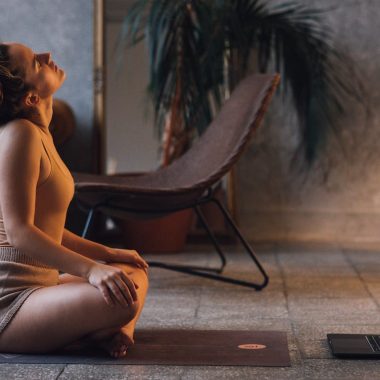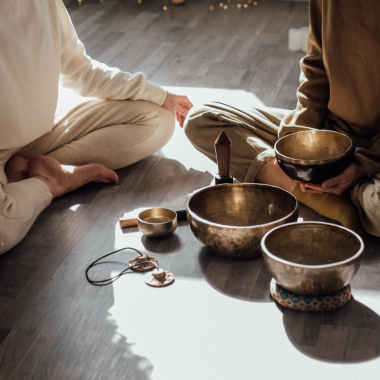Journaling is a powerful tool for self-reflection, mental health, and personal growth. By regularly expressing your thoughts and feelings on paper, you can gain insights into your emotions, set goals, and track your progress over time. In this article, we will explore the importance of journaling and provide tips on how to incorporate it into your daily life.
The Importance of Journaling
Journaling offers numerous benefits, such as:
- Improved mental health: By putting thoughts and emotions on paper, you can process and release pent-up feelings, which may help reduce symptoms of depression and anxiety.
- Enhanced self-awareness: Journaling encourages self-reflection, enabling you to identify patterns in your thoughts, behaviors, and emotions, leading to a better understanding of yourself.
- Reduced stress and anxiety: Writing about your feelings and experiences can serve as an emotional outlet, helping to alleviate stress and anxiety.
- Increased creativity and problem-solving skills: Journaling can stimulate creative thinking and help you approach challenges from new perspectives.
- Goal-setting and tracking personal growth: Journaling allows you to set goals, monitor progress, and reflect on your personal development.
Incorporating Journaling into Your Routine
Journaling is a flexible practice that can be done at any time that suits you. Some people prefer to journal in the morning to set intentions for the day, while others find it helpful to reflect on their experiences before bed. The key is to find a routine that works for you and stick to it.
Here are some tips for seamlessly incorporating journaling into your routine:
- Dedicate a specific time for journaling in your daily schedule: To make journaling a consistent habit, designate a specific time in your day for this activity. It could be in the morning to set the tone for the day or in the evening as a way to reflect and unwind. Find a time that works best for you and commit to it.
- Create a comfortable and inviting journaling space: Establishing a dedicated space for journaling can make the activity more enjoyable and inviting. Choose a quiet, clutter-free area with good lighting and comfortable seating. Personalize your space with inspirational quotes, calming artwork, or scented candles to set the mood.
- Use journaling as a tool for mindfulness and meditation: Mindfulness and journaling can complement each other, as both practices encourage self-reflection and present-moment awareness. Try combining your journaling practice with mindfulness exercises, such as deep breathing or body scans, to enhance the benefits of both activities.
- Combine journaling with other self-care activities, like exercise or reading: Integrating journaling with other self-care activities can help you maintain a balanced and holistic approach to personal well-being. For example, you can jot down your thoughts and reflections after a workout or use your journal to document the insights you’ve gained from a book you’re reading.
- Set realistic expectations and be kind to yourself: Remember that journaling is a personal journey, and there is no right or wrong way to do it. Be patient with yourself and avoid self-judgment. If you miss a day or struggle to find the right words, give yourself grace and remember that the purpose of journaling is self-exploration and growth.

Celebrities Who Use Journaling and Their Experiences
Many celebrities have adopted journaling as a tool for self-improvement and maintaining their mental health. Here are some well-known personalities who have shared their experiences with journaling:
- Oprah Winfrey: Oprah, the iconic media mogul and talk show host, has been a passionate journaler for years. She believes that journaling has helped her maintain a sense of gratitude and self-awareness throughout her life. Oprah often shares excerpts from her journals and encourages her followers to adopt journaling as a means of personal growth and reflection.
- Emma Watson: The talented actress and activist, Emma Watson, has spoken openly about her love for journaling. She uses it as a way to process her emotions, work through difficult experiences, and gain a deeper understanding of herself. Emma has also mentioned that journaling has been a significant part of her journey towards self-acceptance and personal growth.
- Tim Ferriss: Bestselling author, entrepreneur, and productivity expert, Tim Ferriss, is a strong advocate of journaling. He credits journaling as a valuable tool for overcoming anxiety, improving productivity, and gaining clarity in both his personal and professional life. Tim has frequently discussed the benefits of various journaling techniques, such as the “morning pages” and the “five-minute journal,” and encourages his audience to try them for themselves.
- Reese Witherspoon: The award-winning actress and producer, Reese Witherspoon, has often shared her love for journaling on social media. She considers journaling as a way to stay organized, focused, and in touch with her emotions. Reese has also mentioned using her journal to set goals, track her personal growth, and reflect on her experiences.
- Lady Gaga: Pop superstar and actress, Lady Gaga, has been open about her struggles with mental health and the benefits of journaling in her life. She has shared that journaling has helped her navigate through challenging emotions, gain insight into her thought patterns, and find solace during difficult times.
These celebrities’ experiences with journaling show the diverse benefits of this practice for mental health, personal growth, and self-awareness.
Different Journaling Styles to Explore
Journaling is a versatile practice that can be adapted to suit your individual needs and preferences. There are numerous journaling styles and techniques available, allowing you to experiment and find the approach that works best for you. Here are some popular journaling styles to explore:
- Bullet Journaling: Developed by Ryder Carroll, bullet journaling is a structured system that combines to-do lists, calendars, and note-taking. It uses specific symbols and layouts to help you organize tasks, events, and thoughts in a clear and efficient manner. Bullet journaling can be especially beneficial for those who enjoy structure and want to increase productivity.
- Morning Pages: This journaling technique, popularized by Julia Cameron in her book “The Artist’s Way,” involves writing three pages of free-flowing thoughts every morning. Morning pages are intended to be a stream-of-consciousness exercise that helps clear your mind, improve creativity, and set the tone for the day.
- Gratitude Journaling: Focusing on positive experiences and expressing gratitude daily can have a significant impact on your mental health and overall well-being. Gratitude journaling involves writing down things you are grateful for each day, helping you cultivate a positive mindset and recognize the good in your life.
- Art Journaling: If you enjoy visual expression, art journaling might be the perfect fit for you. This journaling style combines written words with visual art, such as drawing, painting, or collage, allowing you to express yourself creatively and explore your thoughts and feelings through multiple mediums.
- Reflective Journaling: Reflective journaling encourages you to delve deeper into your thoughts, feelings, and experiences. It’s an introspective practice that focuses on self-discovery, personal growth, and understanding your emotions. By asking yourself open-ended questions and exploring your inner world, you can gain valuable insights and foster emotional intelligence.
- Dream Journaling: Recording your dreams can be a fascinating way to explore your subconscious mind and better understand your innermost thoughts and feelings. Dream journaling involves writing down your dreams as soon as you wake up, detailing the events, emotions, and any recurring themes or symbols.
By trying different journaling styles, you can discover the approach that resonates with you and best supports your personal growth and mental health. Don’t be afraid to experiment and combine techniques to create a unique journaling practice tailored to your needs.








